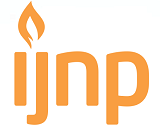Effectiveness of Peer Education Method in Increasing Knowledge and Attitude Towards HIV/AIDS Prevention among Students in Samarinda
DOI:
https://doi.org/10.18196/ijnp.32100Keywords:
health education, peer education, prevention of HIV/AIDSAbstract
Background: The rise of HIV/AIDS cases on teenagers aged 15 to 24 years old has reached 25%. Inadequate knowledge regarding HIV/AIDS has been particular issue contributing to the rise of the cases.
Objective: This study aims to find out the effectiveness of peer education methods on knowledge and attitudes regarding HIV/AIDS prevention in students of SMK Kesehatan in Samarinda.
Method: This study is a quasi-experimental design with a non-equivalent control group of pre-test and post-test. The sample of the study was 60 students of SMK Kesehatan in Samarinda, selected through purposive sampling, and it was divided into an experimental group that was exposed to the treatment of the peer education method, also, the other 30 students in the control group were only given a module. Data analysis used paired t-test with a significant level of p = 0.05.
Result: The result found significant differences before and after intervention in intervention groups between pre and post-test of knowledge (t=-3.83, p= 0.01) and attitudes (t=-4.54, p=0.00). A significant increase in knowledge and attitudes in the treatment group was higher than the control group.
Conclusion: The peer education method is effective to increase the knowledge and positive attitudes of the students of SMK Kesehatan in Samarinda.
References
Adyani, S. A. M., Muflih, M., & Syafitri, E. N. (2019). Kerentanan Kehamilan Remaja Dan Konseling Sebaya: Tinjauan Teori. Jurnal Keperawatan Respati Yogyakarta, 6(1), 552-557.
Astari, R., & Fitriyani, E. (2019). Pengaruh Peer Education terhadap Pengetahuan dan Sikap Remaja Tentang Pencegahan Hiv-aids di Smk Korpri Majalengka. Jurnal Ilmu Kesehatan Bhakti Husada: Health Sciences Journal, 10(2), 143-152.
Depkes, R. I. (2013). Riset kesehatan dasar. Jakarta: Badan Penelitian dan pengembangan Kesehatan Kementrian Kesehatan RI.
Feith, H. J., Gradvohl, E., Füzi, R., Darvay, S. M., Krekó, I. B., & Falus, A. (2018). Health Education–Responsibility–Changing Attitude. A New Pedagogical and Methodological Concept of Peer Education. Acta Universitatis Sapientiae, Social Analysis, 8(1), 55-74.
Fertman, C. I., & Allensworth, D. D. (2016). Health promotion programs: from theory to practice. John Wiley & Sons
Ibrahim, N., Rampal, L., Jamil, Z., & Zain, A. M. (2012). Effectiveness of peer-led education on knowledge, attitude and risk behavior practices related to HIV among students at a Malaysian public university—a randomized controlled trial. Preventive medicine, 55(5), 505-510.
Jennings, J. M., Howard, S., & Perotte, C. L. (2014). Effects of a school-based sexuality education program on peer educators: the Teen PEP model. Health Education Research, 29(2), 319-329.
Kasih, L. C. (2016). Efektifitas Peer Education Pada Pengetahuan Dan Sikap Siswa SMA Dalam Pencegahan HIV/AIDS. Jurnal Ilmu Keperawatan, 4(2), 26-33.
Kemenkes, R. I. (2013). Laporan Triwulan Situasi Perkembangan HIV/AIDS di Indonesia.
Liu, J., Zhao, S., Chen, X., Falk, E., & Albarracín, D. (2017). The influence of peer behavior as a function of social and cultural closeness: A meta-analysis of normative influence on adolescent smoking initiation and continuation. Psychological bulletin, 143(10), 1082.
Maio, G. R., Haddock, G., & Verplanken, B. (2018). The psychology of attitudes and attitude change. Sage Publications Limited.
Mason-Jones, A. J., Flisher, A. J., & Mathews, C. (2011). Who are the peer educators? HIV prevention in South African schools. Health education research, 26(3), 563-571.
Ningrum, S. A. W., & Sumaryani, S. (2018). Peer Education Prevents Sexual Risk Behavior Among Adolescents in Rural Area. Indonesian Nursing Journal of Education and Clinic (INJEC), 2(2), 193-199.
Oktriyanto, O., & Alfiasari, A. (2019). Dating and Premarital Sexual Inisiation on Adolescence in Indonesia. KEMAS: Jurnal Kesehatan Masyarakat, 15(1), 98-108.
Sarwono, S. W. (2011). Psikologi Remaja edisi revisi. Jakarta: Rajawali Pers.
Sun, W. H., Miu, H. Y. H., Wong, C. K. H., Tucker, J. D., & Wong, W. C. W. (2018). Assessing participation and effectiveness of the peer-led approach in youth sexual health education: systematic review and meta-analysis in more developed countries. The Journal of Sex Research, 55(1), 31-44.
World Health Organization. (2014). The global health sector strategy on HIV.
Downloads
Published
Issue
Section
License
License
Articles published in the IJNP (Indonesian Journal of Nursing Practices) are licensed under a Attribution 4.0 International (CC BY 4.0) license. You are free to:
- Share — copy and redistribute the material in any medium or format.
- Adapt — remix, transform, and build upon the material for any purpose, even commercially.
This license is acceptable for Free Cultural Works. The licensor cannot revoke these freedoms as long as you follow the license terms. Under the following terms:
Attribution — You must give appropriate credit, provide a link to the license, and indicate if changes were made. You may do so in any reasonable manner, but not in any way that suggests the licensor endorses you or your use.
- No additional restrictions — You may not apply legal terms or technological measures that legally restrict others from doing anything the license permits.
Copyright
Authors who publish with IJNP (Indonesian Journal of Nursing Practices) agree to the following terms:
- Authors retain copyright and grant IJNP (Indonesian Journal of Nursing Practices) the right of first publication with the work simultaneously licensed under an Attribution 4.0 International (CC BY 4.0) that allows others to remix, adapt and build upon the work with an acknowledgment of the work's authorship and of the initial publication in IJNP (Indonesian Journal of Nursing Practices).
- Authors are permitted to copy and redistribute the journal's published version of the work (e.g., post it to an institutional repository or publish it in a book), with an acknowledgment of its initial publication in IJNP (Indonesian Journal of Nursing Practices).














